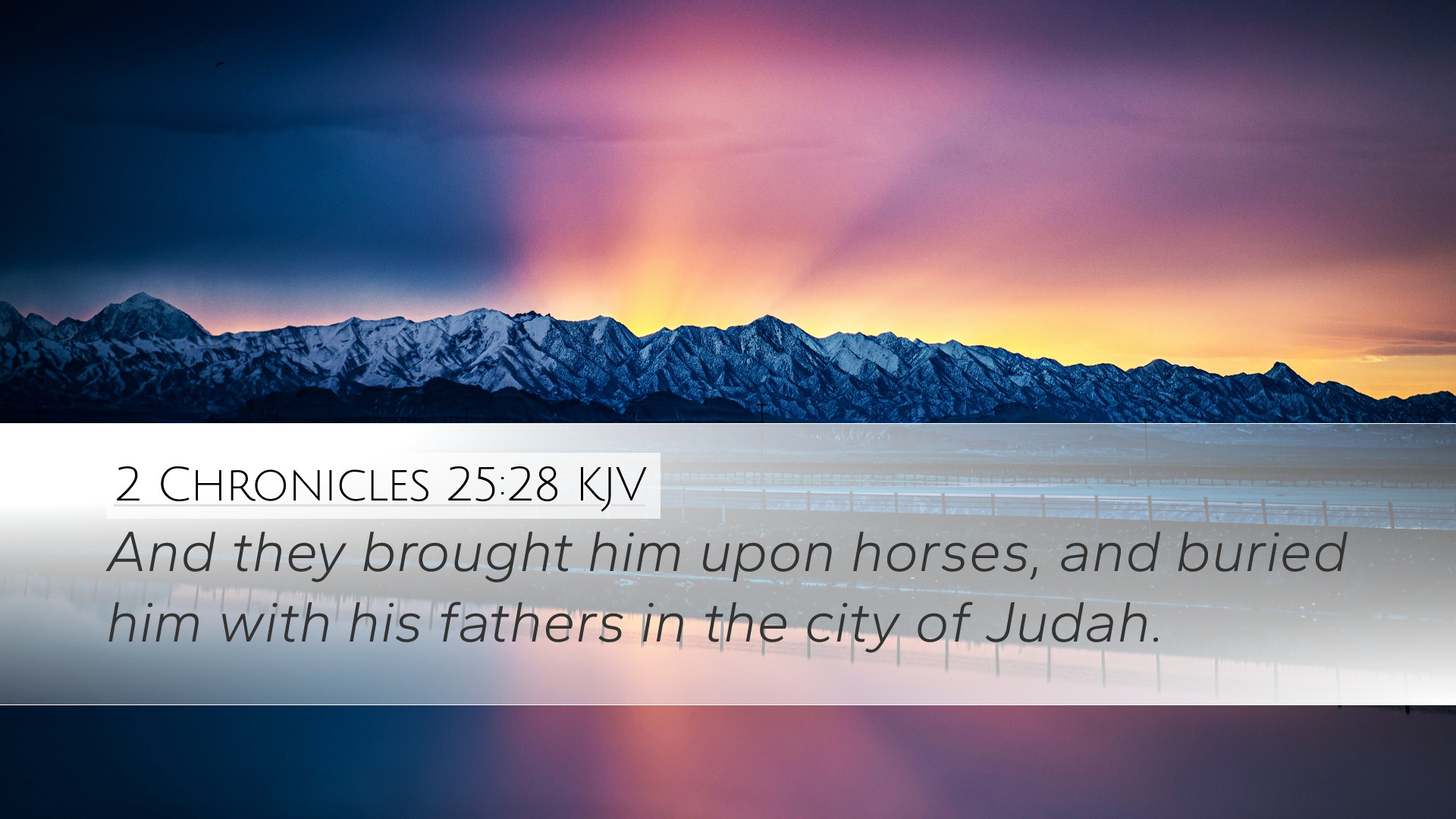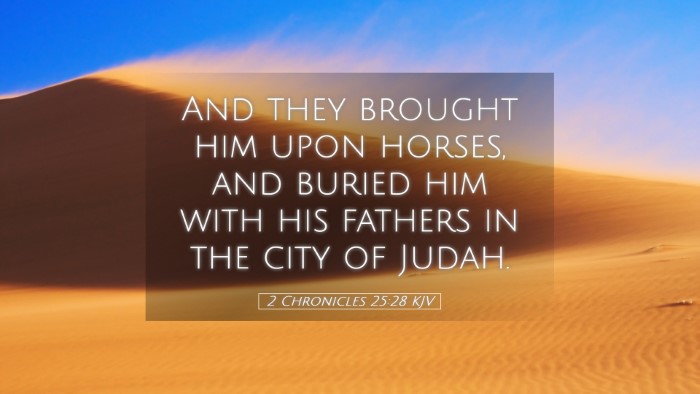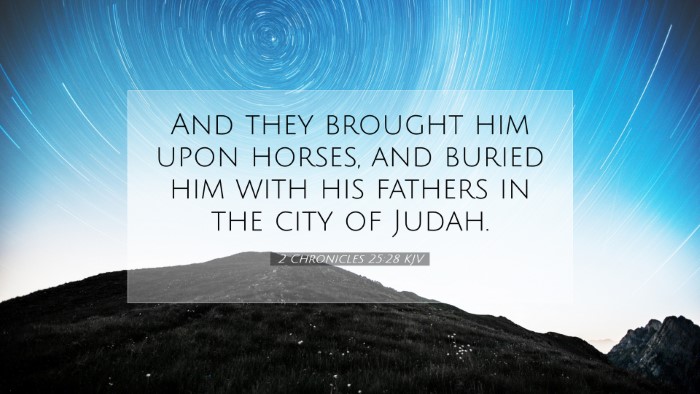Commentary on 2 Chronicles 25:28
Verse Text: "And they brought him upon horses, and buried him with his fathers in the city of Judah."
Introduction
The passage in 2 Chronicles 25:28 marks the conclusion of the reign of Amaziah, king of Judah. This verse encapsulates the aftermath of a monarch who found himself caught between devotion to Yahweh and the temptations of idolatry and pride. The burial rites of kings held significant importance in ancient Judah, and this verse provides insight into the legacy left by Amaziah. This commentary draws from varied public domain sources to elucidate the theological and practical implications of this verse.
Contextual Analysis
Amaziah succeeded Joash and ruled over Judah during a time of both military success and spiritual turmoil. According to the previous chapters (especially 2 Chronicles 25), we see Amaziah leading his people into battle against Edom, achieving victory, and subsequently succumbing to pride and idolatry. This context is crucial in understanding the implications of his final resting place and the attitudes surrounding his death.
Historical Background
Matthew Henry emphasizes that Amaziah's reign should be viewed in the light of Israel’s political landscape and the spiritual state of God’s people. His initial loyalty to God, evidenced through the military conquests, ultimately gave way to his later idolatry. Such a transition serves as a sobering reminder of the volatility of faith that one can experience, especially among those in positions of power.
Spiritual Reflections
Albert Barnes notes that Amaziah’s actions reflect a common human tendency to forget past victories when they are followed by present crises or successes. In this case, the defeat of Edom led to a heart full of pride, distancing him from the God who granted the victory. This acknowledgment serves as a warning for leaders today: the successes they achieve must be continually submitted before God’s authority.
Analysis of the Burial
The act of bringing Amaziah "upon horses" for burial is significant:
- Honor in Death: Adam Clarke points out that burials were rites of honor for kings. Riding horses, a symbol of nobility, indicates that despite his failings, he is still recognized as a king deserving a proper burial.
- Closure: This burial signifies the closure of a tumultuous reign. While Amaziah faced condemnation for his idolatry, the manner of his burial indicates that he was still viewed as part of the lineage of David, a covenant community member.
Theological Insights
This passage provides several theological reflections pertinent to the character of God and human nature:
- The Sovereignty of God: The sequence of events leading to Amaziah's demise indicates God’s ultimate authority in earthly matters. Events unfold in such a way as to highlight that even a misguided king like Amaziah is still part of God's redemptive plan.
- Consequences of Sin: The narrative teaches that the consequences of sin often influence not only the sinner but also their community. Amaziah’s idolatry led to severe ramifications for Judah, including eventual judgment.
- Legacy beyond Life: Amaziah's story reminds leaders today that their legacies are shaped by their choices, especially in areas of faith and morality. His burial, while honoring him, also serves as a cautionary tale.
Application for Today
For pastors, theologians, and students alike, 2 Chronicles 25:28 presents timeless applications:
- Self-Examination: It invites a period of self-reflection. How do our successes in ministry impact our humility before God? Are we prone to the same forgetfulness or pride as Amaziah?
- Teaching on Idolatry: This verse serves as a basis for discussing the various forms of modern idolatry in our lives, be it power, technology, or self-importance, which can lead one astray from true worship.
- Encouragement for Restoration: It can lead to esperanza—acknowledging that despite the failures, God is ever willing to restore and renew those who turn back to Him, just as He did with His people despite Amaziah’s failings.
Conclusion
The conclusion of Amaziah's life, as recorded in 2 Chronicles 25:28, serves as a profound reminder of the complexity of human leadership and the juxtaposition of divine sovereignty and human agency. Each detail, from his military triumphs to his idols, weaves a tapestry that challenges contemporary believers to pursue faithfulness in every facet of life, always cognizant of their legacy. In the sacred space of scripture, we are invited to learn and apply these lessons in our walk with God.


